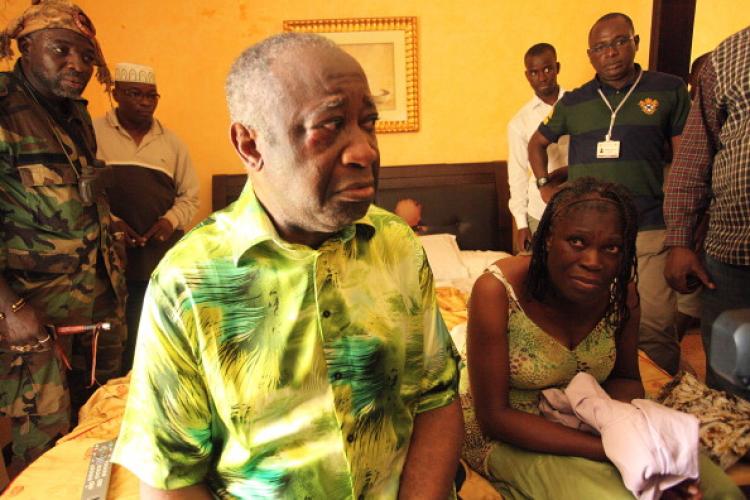Gbagbo Arrested in Ivory Coast After Standoff
French-backed forces loyal to president-elect Alassane Ouattara captured former head of state Laurent Gbagbo on Monday in the Ivory Coast, a move that could put an end to the five-month standoff in the deeply divided West African country.

Ivory Coast strongman Laurent Gbagbo and his wife Simone sit on a bed at the Hotel du Golf in Abidjan after their arrest on April 11, 2011. STR/AFP/Getty Images
|Updated:





